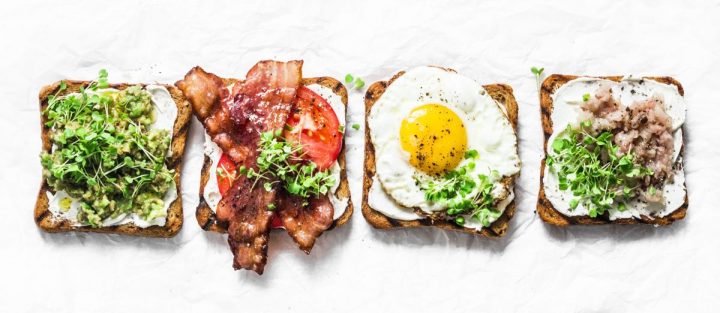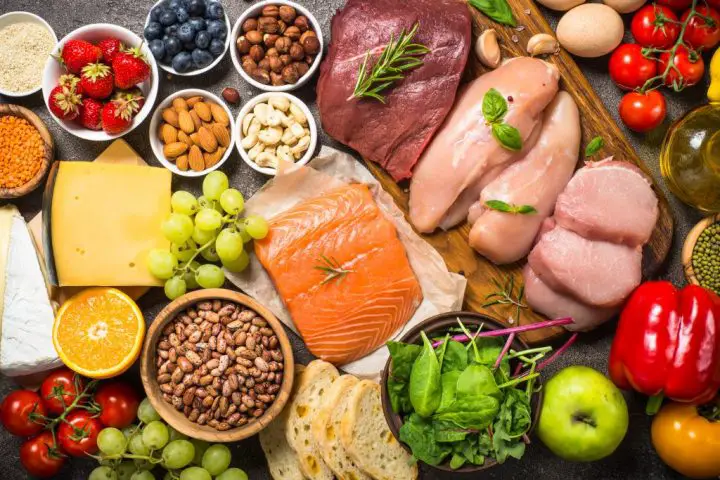Avocado is a nutrient-dense, heart-healthy superfood. Unlike most fruits, avocado contains more healthy fats than sugar so it is perfect for low-carb diets like the ketogenic diet.
We’re receiving a lot of questions about avocado so we have compiled all of your questions and answered all of them in this Ultimate Avocado FAQ page.
Avocado’s Nutrition Profile
Avocado FAQs
Yes, avocado is keto-friendly since it is high in healthy fats and low in net carbohydrates. One avocado fruit contains 29 g of healthy fats with only 4 grams of net carbs. It is also nutrient-dense, high in fiber, and one of the staple foods included in the ketogenic diet.
Avocado is a fruit. A fruit is defined as a fleshy and sweet product of plant or tree that contains seed and can be consumed as food.
Yes, avocado is considered as a single-seeded berry. Berries are defined as a fleshy fruit made from an ovary of a single flower. Other berries include pumpkins, bananas, and watermelon. Strangely enough, strawberry is not considered a berry using this definition.
A 100g-serving of avocado contains 15g of fat, 9g of carbs (7g of which is fiber), and only 2g of protein. Although avocado contains some protein, it is more appropriate to classify it as fat due to its high fat content.
You can tell the ripeness of avocado by removing the stem at the top. If the stem does not come away easily, then it is not ripe yet. If you see a green color underneath the stem, then it is perfectly ripe. Otherwise, if you see a dark color then it is overripe.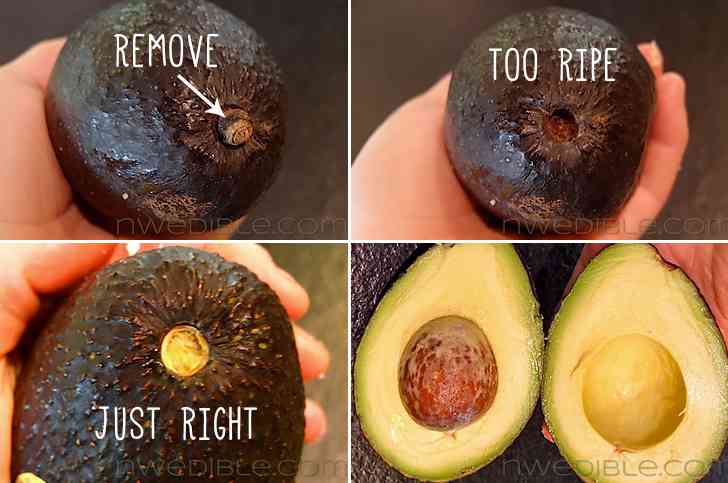
There is a common misconception that avocado is bad for dogs due to its Persin content. Persin is known to be toxic for some animals when ingested in large quantities. Such animals include rabbits, horses, goats, and birds. As per Dr. Jean Dodds, persin does not have a negative impact on dogs. Just make sure that you remove the avocado pit since it is a choking hazard for dogs.
Yes, avocados grow on trees. It will take about 10 years for an avocado plant to grow to a fruit-bearing tree. Here is a picture of an avocado tree: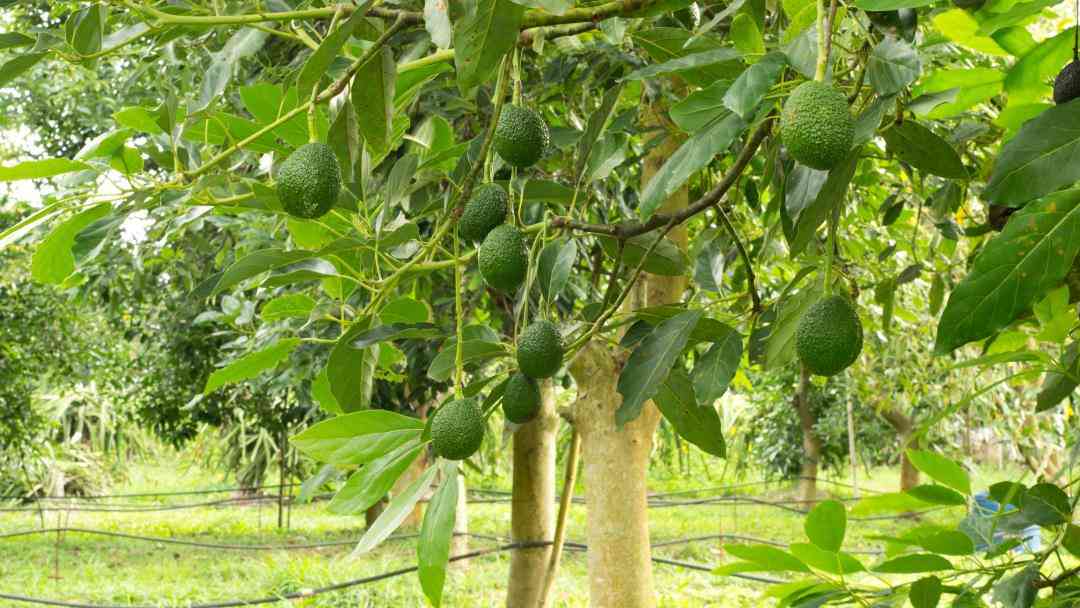
No, avocado is not fattening if you eat it by itself. It contains a lot of healthy fats and fiber which makes it easier for you to feel full. It also does not contain sugar so it won’t spike your insulin and cause you to store more fat.
No, avocado does not cause gas for most people. However, avocado contains a considerable amount of fiber so it may cause gas for some individuals who are sensitive to fiber.
Yes, avocado skin is edible. However, common avocado varieties such as the Hass has a very rough and extremely bitter-tasting skin so it is not advisable to be eaten. Other varieties such as Mexicola and Topa Topa have thinner and less bitter skin so you can eat these avocado varieties with its skin.
Yes, an average avocado fruit contains about 0.20 g of omega-3 fatty acid which is equal to 8% of the daily recommended intake for omega-3. It also contains 2.51 g of omega-6 fatty acids making its omega 6 to omega 3 ratio as 13 to 1.
Avocado has a pH level between 6.3 – 6.7 so it can be considered as slightly acidic. However, it is considered as a non-acidic fruit since it contains very low amounts of malic and citric acid compared to most fruits. A pH level below 7 is considered acidic, a pH level of 7 is considered neutral, and a pH level between 7 and 14 are considered alkaline.
No, avocado does not cause constipation. Avocado is rich in fiber which actually helps in digestion and prevents constipation.
No, it is not recommended to eat avocado pits or seeds. There is not enough research yet to support if the avocado pit is safe for human consumption.
Yes, avocados are good for diabetics because it is very low in sugar and high in fiber. It will not raise your blood sugar levels and it may improve your insulin sensitivity as well.
An overripe avocado will have a mushy texture with brown spots so it is not appetizing and has a funky flavor. Nonetheless, it is still safe to eat an overripe avocado. Just make sure that is just overripe and not spoiled from oxidation.
Yes, there is nothing wrong with eating avocado everyday. Avocado is a nutrient-dense superfood that contains a considerable amount of healthy fats with little to no sugar content. Just make sure that you are eating the raw avocado fruit by itself and you are not mixing it with other artificial flavorings.
The avocado was considered as an aphrodisiac by the Aztecs just because of its testicle-like shape. However, there is no science backing up that avocado can directly increase libido so it should not be considered as an aphrodisiac.
Yes, avocado is good for pregnant women. It is rich in folate and potassium which are both crucial for fetal growth and development. It is also rich in healthy fats and minerals which can help in developing the child’s brain at the womb.
There is a common misconception that avocados are not allowed for cats due to its persin content. Persin is known to be toxic for some animals when ingested in large quantities. Such animals include horses, rabbits, birds, and goats. As per Dr. Jean Dodds, persin does not have a negative impact on cats.
Yes, avocado is good for gout since it is high in potassium content. Potassium helps gout sufferers to excrete uric acid from the body. Avocado also contains almost double the potassium content of banana, a fruit that is known for its high potassium content.
Yes, like most fruits that are high in fiber, avocado is easy to digest. However, some individuals who have sensitive stomach experience gas or bloating when eating too much avocado.
No, avocado does not cause acne. It actually helps reduce the inflammation and redness associated with acne due to its high Omega-3 fatty acid content. Applying avocado oil topically may also help wounds to heal faster.
Yes, avocado is gluten-free since it does not contain any wheat product. Additionally, all fruits and vegetables are all naturally gluten-free.
Avocado is not advisable to be consumed for people with acid reflux. Due to its high fiber content, avocado slows down the emptying of the stomach which makes acid reflux more likely.
Unripe avocados are perfectly safe for human consumption. It will just taste bitter and it will not have a creamy texture.
There are two types of cholesterol – HDL (good cholesterol) and LDL (bad cholesterol). Due to its high content of monounsaturated fatty acids, avocado is known to raise HDL levels and lower LDL levels. Thus, avocado can be the perfect natural food medicine for people with high bad cholesterol levels.
Avocados contain a chemical called Persin which is known to be toxic for some animals including birds, goats, sheep, and cows when ingested in large amounts. On the other hand, Persin is not poisonous to humans, dogs, and cats.
Yes, avocado is good for ulcer since it contains high amounts of fiber. Fiber is known to lessen the amount of stomach acid while easing pain and bloating. Studies also show that a fiber-rich diet can help prevent ulcers.
Yes, avocados are included in a paleo diet because it is nutrient-dense and a naturally-occurring food.
Foods that are high in oxalate are generally avoided to prevent and treat kidney stones. Avocado is a low-oxalate fruit so you can still eat it even if you have kidney stone problems.
Yes, avocados have a low glycemic index of 15 out of 100 so it is safe for people with diabetes. The carbohydrates in avocados are mainly from fiber so it will not spike your blood sugar levels.
Don’t forget to share this Avocado Facts article with your friends!
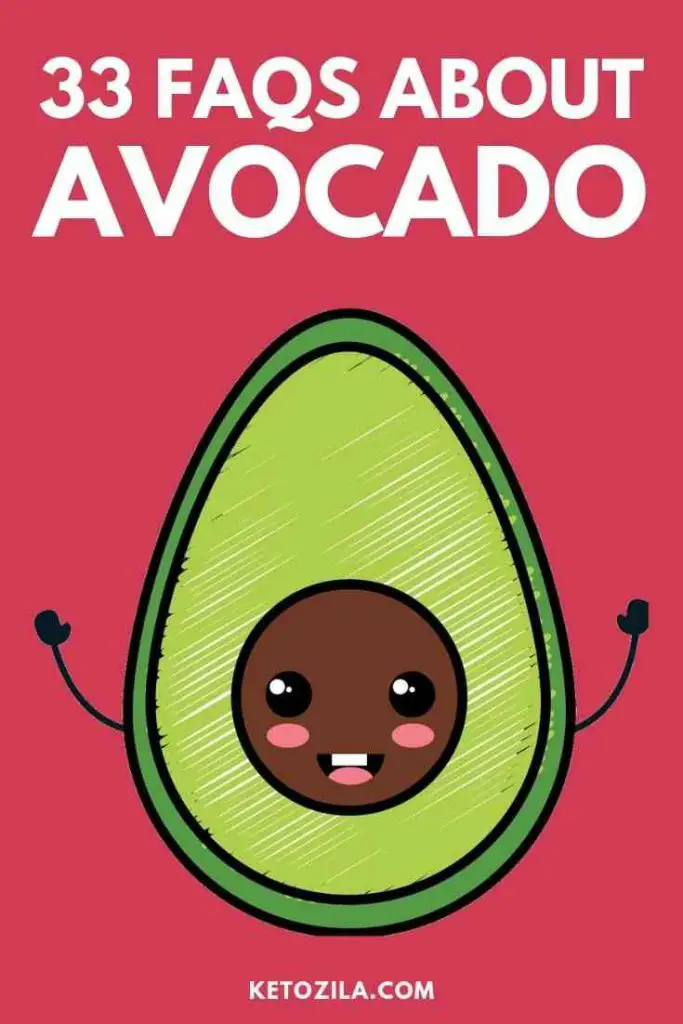
References
- https://www.ncbi.nlm.nih.gov/pmc/articles/PMC6164649/
- https://www.ncbi.nlm.nih.gov/pmc/articles/PMC3664913/
- https://www.ncbi.nlm.nih.gov/pubmed/8026287
- https://www.ncbi.nlm.nih.gov/pubmed/6541397
- https://www.ncbi.nlm.nih.gov/pmc/articles/PMC4882728/
- https://www.ncbi.nlm.nih.gov/pmc/articles/PMC4882725/
- https://www.ncbi.nlm.nih.gov/pmc/articles/PMC6606701/
- https://www.ncbi.nlm.nih.gov/pmc/articles/PMC5623960/
- https://www.ncbi.nlm.nih.gov/pubmed/23638933
- https://www.ncbi.nlm.nih.gov/pubmed/8581318




